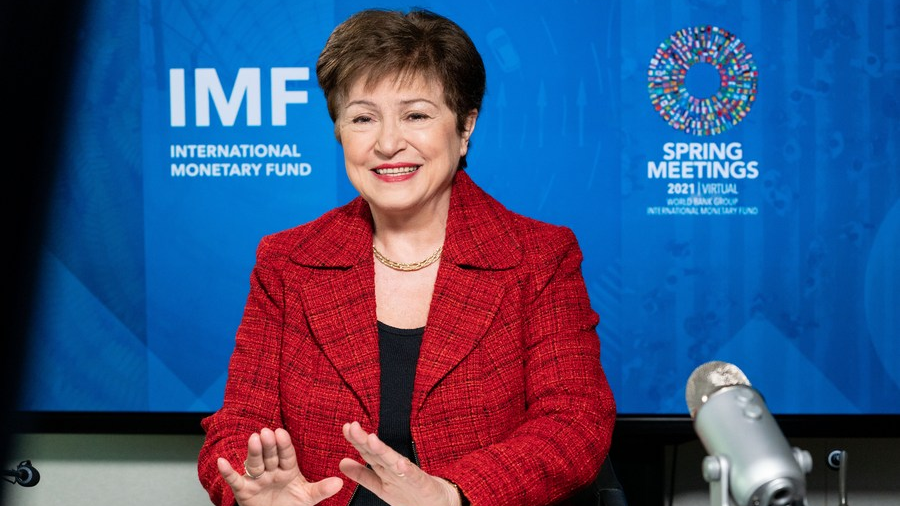Kristalina Georgieva, managing director, International Monetary Fund
The year 2023 will be tougher than last year because the economies of the US, the EU and China will slow down, she said.
”Even in countries that are not in recession, it would feel like a recession for hundreds of millions of people,” she explained
A third of the global economy will be in recession this year, the IMF chief has said, and warned that 2023 will be ”tougher” than last year as the US, EU and China will see their economies slow down.
Kristalina Georgieva, the chief of the International Monetary Fund (IMF) made these grim assertions on Sunday during a CBS news programme ”Face the Nation.”
It comes at a time when the ongoing conflict in Ukraine shows no signs of abating after more than 10 months, with spiralling inflation, higher interest rates and the surge in coronavirus infections in China fuelled by the Omicron variant.
”We expect one-third of the world economy to be in recession,” Georgieva said on the news programme.
The year 2023 will be tougher than last year because the economies of the US, the EU and China will slow down, she said.
”Even in countries that are not in recession, it would feel like a recession for hundreds of millions of people,” she explained.
In October last year, the IMF trimmed its growth forecast for 2023.
”Global growth is forecast to slow from 6 per cent in 2021 to 3.2 per cent in 2022 and 2.7 per cent in 2023. This is the weakest growth profile since 2001 except for the global financial crisis and the acute phase of the COVID-19 pandemic,” it said.
China has scrapped its zero Covid policy and opened its economy following a wave of anti-government protests in the country.
”For the next couple of months, it would be tough for China, and the impact on Chinese growth would be negative, the impact on the region will be negative, the impact on global growth will be negative,” she added.
In October, the IMF cut its outlook for global economic growth in 2023, reflecting the continuing drag from the war in Ukraine as well as inflation pressures and the high interest rates engineered by central banks like the U.S. Federal Reserve aimed at bringing those price pressures to heel.
Since then, China has scrapped its zero-COVID policy and embarked on a chaotic reopening of its economy, though consumers there remain wary as coronavirus cases surge. In his first public comments since the change in policy, President Xi Jinping on Saturday called in a New Year’s address for more effort and unity as China enters a “new phase.”
“For the first time in 40 years, China’s growth in 2022 is likely to be at or below global growth,” Georgieva said.
Moreover, a “bushfire” of expected COVID infections there in the months ahead are likely to further hit its economy this year and drag on both regional and global growth, said Georgieva, who traveled to China on IMF business late last month.
“I was in China last week, in a bubble in a city where there is zero COVID,” she said. “But that is not going to last once people start traveling.”
“For the next couple of months, it would be tough for China, and the impact on Chinese growth would be negative, the impact on the region will be negative, the impact on global growth will be negative,” she said.
In October’s forecast, the IMF pegged Chinese gross domestic product growth last year at 3.2% – on par with the fund’s global outlook for 2022. At that time, it also saw annual growth in China accelerating in 2023 to 4.4% while global activity slowed further.
Her comments, however, suggest another cut to both the China and global growth outlooks may be in the offing later this month when the IMF typically unveils updated forecasts during the World Economic Forum in Davos, Switzerland.
US ECONOMY ‘MOST RESILIENT’
Meanwhile, Georgieva said, the U.S. economy is standing apart and may avoid the outright contraction that is likely to afflict as much as a third of the world’s economies.

